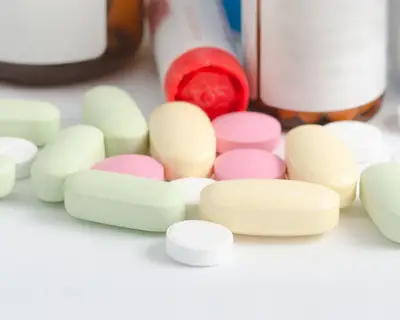RESEARCH TRIANGLE PARK, NC—RTI International health economists contributed to the recently released Surgeon General report on addiction, Facing Addiction in America: The Surgeon General’s Report on Alcohol, Drugs, and Health, with evidence about cost and cost effectiveness of treatment for substance use disorders.
This marks the first time a U.S. Surgeon General has dedicated a report to substance misuse and related disorders, a matter of public health. The report reviews what is known about substance misuse and how to use that knowledge to address substance misuse and related consequences. Understanding the economic impact of substance use disorder treatment is a key component of understanding how best to allocate resources.
“Overwhelmingly, research shows that treatment for substance use disorders is cost-effective compared to no treatment,” said Gary Zarkin, Ph.D., vice president of behavioral health and criminal justice at RTI International, and a contributing author to the report. “Understanding the cost-effectiveness of these programs is an essential part of addressing addiction in America, and can help policy makers efficiently allocate health care dollars to make the largest impact on improving outcomes.”
The report noted a number of substance use disorder treatments are cost-effective. Among them were outpatient methadone treatment, alcohol use disorder medications, and buprenorphine treatment.
Further, the report makes clear that substance misuse is an underappreciated but critical public health challenge that can lead to substance use disorders. In 2015, nearly 48 million Americans used an illicit drug or misused a prescription medication, approximately 67 million reported binge drinking in the past month, and nearly 28 million self-reported driving under the influence in the past year. This large, at-risk population of Americans can benefit from appropriate screening, prevention, and treatment services.
However, the U.S. health care system has not given the same level of attention to substance use disorders as it has to other health problems—such as cancer, obesity, and diabetes—that affect similar numbers of people.
Substance use disorder treatment in the United States remains largely segregated from the rest of health care and serves only a fraction of those in need of treatment. Only about 10 percent of people with a substance use disorder receive any type of specialty treatment. Further, more than 40 percent of people with a substance use disorder also have a mental health condition, yet fewer than half (48 percent) receive treatment for either disorder.
“Many social, stigma and other factors contribute to this treatment gap,” said Laura Dunlap, Ph.D., senior director of the behavioral health economics program at RTI International, and a contributing author to the report. “Our hope is that policymakers may have a stronger incentive to address some of these barriers to treatment if they have a better understanding of the economic benefits of treatment.”
The report recommends taking action by eradicating negative attitudes and changing the way people think about substance use disorders; recognizing substance misuse and intervening early; and expanding access to treatment.
Zarkin, Dunlap and other RTI researchers have conducted numerous cost, cost-effectiveness and benefit-cost studies of alcohol and drug use disorders, including medication-assisted treatments for Opioid use.
Learn more about RTI’s work in opioid, marijuana, and other behavioral health research.

- RTI International contributed to the Surgeon General report on addiction, Facing Addiction in America: The Surgeon General’s Report on Alcohol, Drugs, and Health, with evidence about cost and cost effectiveness of treatment for substance use disorders
- This marks the first time a U.S. Surgeon General has dedicated a report to substance misuse and related disorders, a matter of public health
- The report noted a number of substance use disorder treatments are cost-effective, including outpatient methadone treatment, alcohol use disorder medications, and buprenorphine treatment
RTI International Media Relations:

